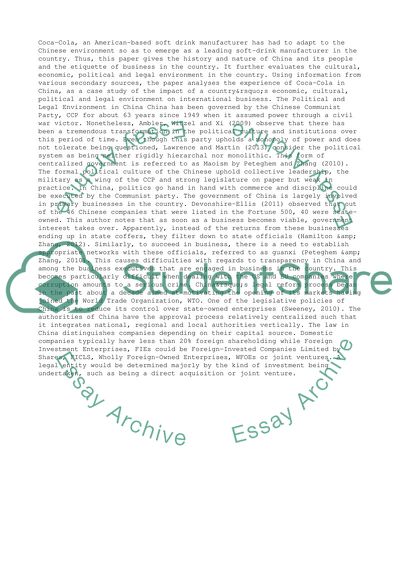Cite this document
(“Extending Retail Services in China Research Paper”, n.d.)
Retrieved from https://studentshare.org/business/1491988-extending-retail-services-in-china
Retrieved from https://studentshare.org/business/1491988-extending-retail-services-in-china
(Extending Retail Services in China Research Paper)
https://studentshare.org/business/1491988-extending-retail-services-in-china.
https://studentshare.org/business/1491988-extending-retail-services-in-china.
“Extending Retail Services in China Research Paper”, n.d. https://studentshare.org/business/1491988-extending-retail-services-in-china.


